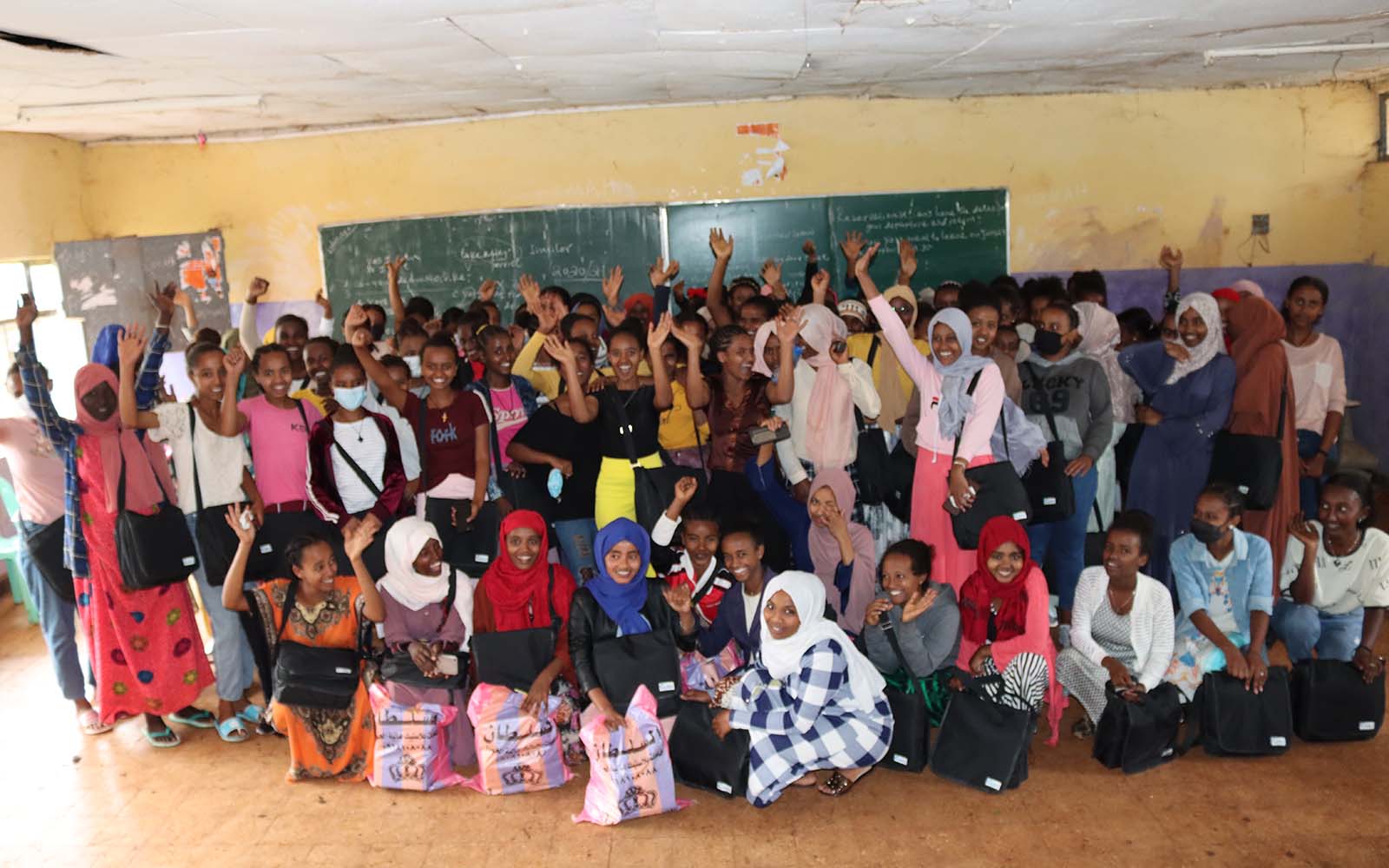Confidence, strength grow with greater access to education
Story

More than anything, Aisha* wants girls and women in the Benishangul Gumuz region of Ethiopia to be able to reach their potential. She wants them to be able to go to school and to be supported on this journey by their families and the government.
“When there is help for female students, they can begin to rely on themselves and stand up for themselves, so in the future, they have the ability to control their lives in the way they want,” says Aisha, 18.
In Benishangul Gumuz, traditional roles often keep young girls and women out of school and focused on household chores and caring for family members. Many feel trapped, Aisha explains, and they often face exploitation, physical and sexual abuse, and heavy workloads.
Working to counter this reality, Cuso International and its partners provide girls and women with opportunities to break through social norms. U-GIRLS 2, a project introduced in 2019, focuses on dismantling existing roadblocks to higher education for women while at the same time supporting families and communities. By engaging community leaders, the project helps to change attitudes and promote gender equality.
This year 400 girls and women in the region – including Aisha – will receive academic resources, trainings and tutorials, and a financial stipend to allow them to focus on their education. Cuso International has partnered with the Benishangul Gumuz Regional Education Bureau and five secondary schools, along with the Institute of International Education. Gender-sensitivity training is also provided to teachers and schools.
For Aisha, the support is crucial. She grew up in Debre Markos in the Amhara region with her parents, sister, and three brothers. Her family was poor, and her father often became violent when he was drinking – an addiction that eroded both the family’s well-being and finances.
When she was 13 years old, Aisha intervened while her father was harming her mother. Afterwards, her uncle in Assosa took her in, but she soon had to leave his home after being forced into unpaid domestic labour. She eventually found paid work with a family that provides her with a safe place to live, and that encourages her academic studies.
With support from U-GIRLS 2, Aisha says she has become more confident and self-reliant, and has her sights set on becoming a doctor.
“Since I joined the program, I have felt that there is a place to go for help and that I am not alone,” she says. “This gives me hope and strength to work hard every day in my education.”
*Name has been changed